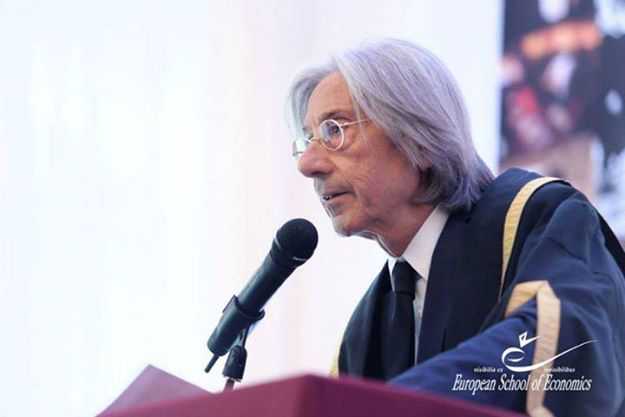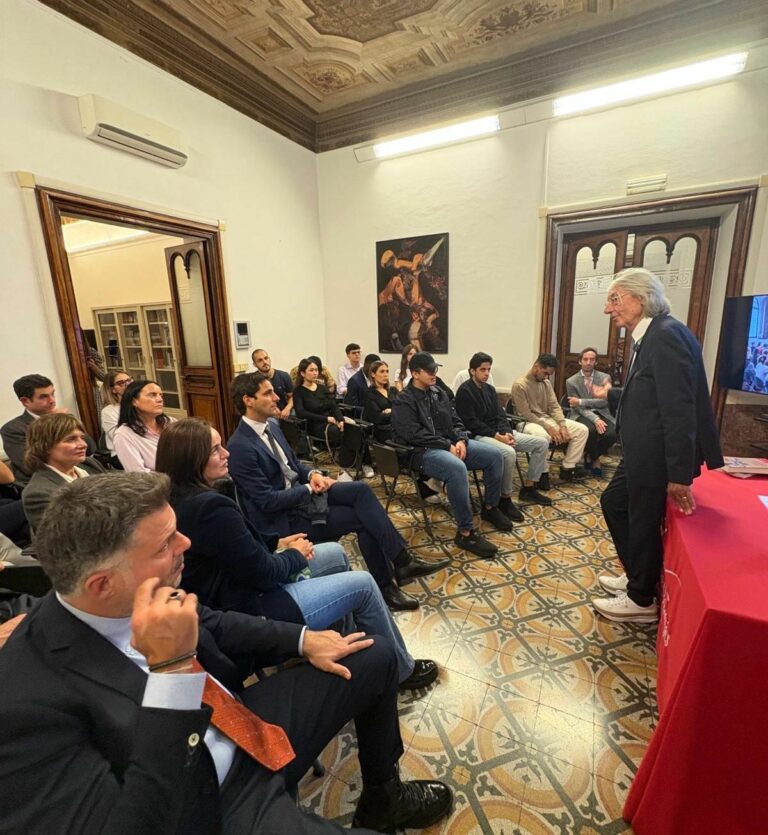The dream and reality are the same thing
separated by time

Nothing is created that has not first been dreamed up by a man.
Behind everything we can see, feel, touch and hear, behind material objects and the reality of the economy, beyond the temples of finance and the pyramids of industry, beyond the skyscrapers of multinational corporations and the entire business of existence, behind every achievement of our civilisation, there is always a special man and his dream.
Visibilia ex invisibilibus.
All that appears concrete and solid, all that we can see, feel, touch and hear, that sounds full under the blows of our blind man’s stick that tries to probe the walls of the visible, is but the projection of a world invisible to our senses, vertical to it and constituting its cause.
Now, if two phenomena are linked by a causal relationship, and one is the effect of the other, we must accept the fact that the cause lives at a higher level of reality than the effect.
The dream and reality are the same thing separated by time. That is why the dream is reality….
The extraordinary ideas, the bold intuitions that have advanced our planet, and thus the future solutions to the vital problems of the species, capable of making us happier and more prosperous, could not exist without an individual with the responsibility to grasp and believe in them, with the strength to sustain their power and to realise them, even at the risk of his own life.
We are therefore faced with a simple and revolutionary discovery: the cause, the source of all civil, scientific and economic progress is always and only the individual and everything originates from the intangibility of his ‘dream’.
The phenomenon is so constant and its observation so rigorous and scientifically exact that it can be classified as a natural phenomenon, governed by inescapable, incontrovertible laws such as those of gravity, friction and entropy or the second law of thermodynamics.
The ‘dream’ is a plunge into the miraculous. We have come this far because there were great divers before us, dreamers, pragmatic utopians, luminous madmen, visionary men, who left the world gasping for breath behind them because they were unable to keep up. If our civilisation did not have these special men, capable of diving into the invisible, of believing in the miraculous, of conceiving the impossible, of dreaming the unattainable, with the absolute certainty that it will become reality, that time will prove them right, we would still be at the dawn of consciousness.
Only the individual is creative and only to individuals do we owe our material and moral progress and the heritage of art, values and great and noble ideas on which our civilisation is still nourished.
The reason is that there are no mass dreams. The masses can have negative visions of the future, dystopias or nightmares, but never dreams. Only the individual can dream.
From the cutting of the Suez Canal to the splitting of the atom, from the discovery of America to space flight, behind every dream of mankind that has become reality there is always one man and one man alone.
We therefore owe everything we are and have to individuals; yet we have persecuted them, almost without exception. Wherever an individual is born, an antagonistic force is immediately set in motion, a mass ready to eliminate him. And this deadly game of guards and robbers between the individual and the masses, which began in the mists of time, still continues. The birth of Jesus and the slaughter of the innocents can be raised to a universal scientific paradigm.
The mass is antagonistic to the individual. It has always been so,
without exception, in every latitude and at all times.
The individual is alive, the mass is antibiotic. And the struggle between individual and mass, the persecution of individuality, is a constant in our history. We need the individual, and at the same time, as a species, we have an irrepressible instinct to suppress it. This is the paradox of our civilisation, the least explored, the most obscure, because it has its roots in the deepest part of our being, where the howl of a nocturnal predator still echoes, the echo of an animal nostalgia.
The individual frightens us, the vastness of his ideas, his unshakable self-confidence, the breadth of his vision, his inner compactness, his luminosity, put us in a state of unbearable pain and in front of a dizzying synallagma. Rousseau’s Social Contract contains these words of Caligula to his courtiers: either you are men, and therefore I am a divinity. Or I am a man, and you are beasts.
Just meeting one, or hearing his voice, or seeing him act, confronts us with our laziness, our ugliness, our unbearable deformity. The effort required to change is too great. We prefer to eliminate the term of comparison. A hammer blow to the talking cricket, the suppression of this voice that tirelessly urges us to be more, to become better, seems the easiest solution every time.
On the island of Ephesus, almost three thousand years ago, a social experiment was carried out and one of the first historically recorded attempts to eliminate the individual once and for all. According to Heraclitus, ‘the inhabitants of Ephesus drove out Hermodorus, the best of them, saying: we do not want to have anyone who is better among us; if anyone is, let him go elsewhere, among the others’.
It was not clear then, nor is it clear today, that history is dialectical and that the agonism between individual and mass is creative and irrepressible. The suppression of the antagonist, should it succeed, would reverberate in a crisis that would be all the more difficult because of the imponderable vacuum that opens up before the winner.
At a broader view, mass and individual form a single reality, they are the two pistons of the same engine. One could not exist without the other, any more than a stick with only one end is imaginable. They are inseparable aspects of a single reality.
Individual comes from indivisible. It indicates a man who has achieved an inner compactness, a high degree of reliability, incorruptibility, love; who has succeeded in making everything he feels, does, says, thinks converge in a single direction. The man of the masses, whom we could at this point call ‘dividual’, is instead a legion, divided between a thousand ‘I’s’ in perpetual struggle with each other, torn apart by conflicting thoughts and emotions, divided from himself and from others, without loyalty, without ideas, without love.
It is the vision of a mass society not made up of equals but made flat through the suppression of the hierarchy that naturally exists and places men at the different rungs of a ladder of responsibility, Jacob’s ladder.
In the Judeo-Christian tradition, original sin is the division from God, the first and most irremediable of divisions. The individual seems to be without this original sin. And it is precisely the capacity to love that appears as the clearest divide between men and the clearest boundary between these two portions of humanity: individuals and the masses.
If we try to reverse the terms of that extraordinary inner equation: ‘love thy neighbour as thyself’, it shows all its genius and the unparalleled knowledge of the human soul it contains.
Loving oneself is the measure and limit of the capacity to love others.
This is still today the highest vision and the most powerful formula for harmonising the eternal antagonism between the individual and the masses.
The individual can love the masses through self-love and the understanding that his neighbour is himself.





